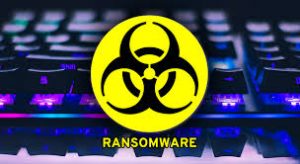 Ransomware Attacks on the rise with additional threats
Ransomware Attacks on the rise with additional threats
Business and residential users are reminded to take extra caution opening an email that:
- Contains a file called request.zip or something of the like and provides a password for opening it.
- Requires you to enable content in Word or
- Excel. Is out of context, discussing something you’ve already worked on or is about a matter/project that is closed.
Phishing emails are most commonly the root cause of a ransomware incident. They are designed to look legitimate and dupe the user into opening the file which in turn gives the cyber-criminal sensitive information like login information with password or allows for the installation of malware into the computer and its network.
If you don’t trust the email or have doubts of its origin and content then please contact the company or individual by phone or other means aside from email. Ask about the email and the links contained within it and if that is what they sent. Sometimes these emails will be sent without the infected user’s knowledge as a way to spread. But before you go telling them they’re infected there is a possibility that the address that is showing as the from address could be spoofed. This means its hiding the real address and it’s made to look like your friend or business colleague. Either way if you don’t have that warm and fuzzy feeling, question it.
Remember:
- Don’t download or open any attachments
- Don’t trust the email
- Don’t click on any links in the email
Additionally
They have started to steal the data before encrypting it. Threating the end user that they will release sensitive information to the public and your address book should you not comply with their demands in addition to rendering it unusable. This is new and concerning threat as there is limited options to mitigate the risk of disclosure.
Regards,
By The Byte
